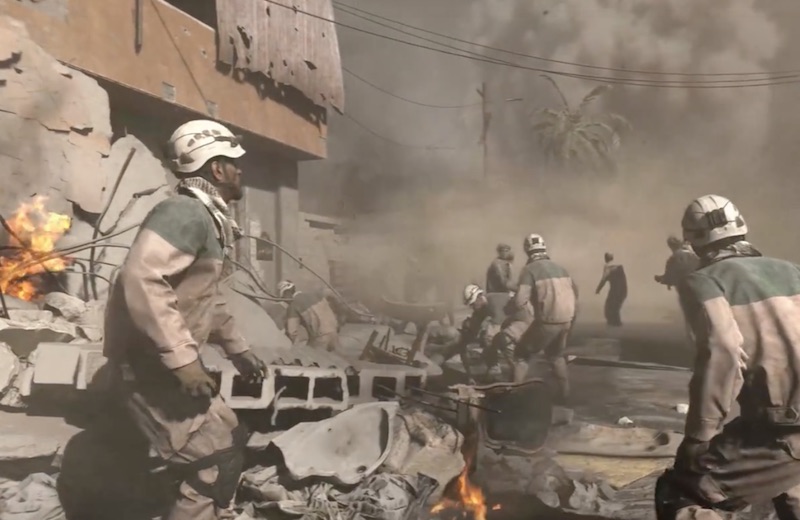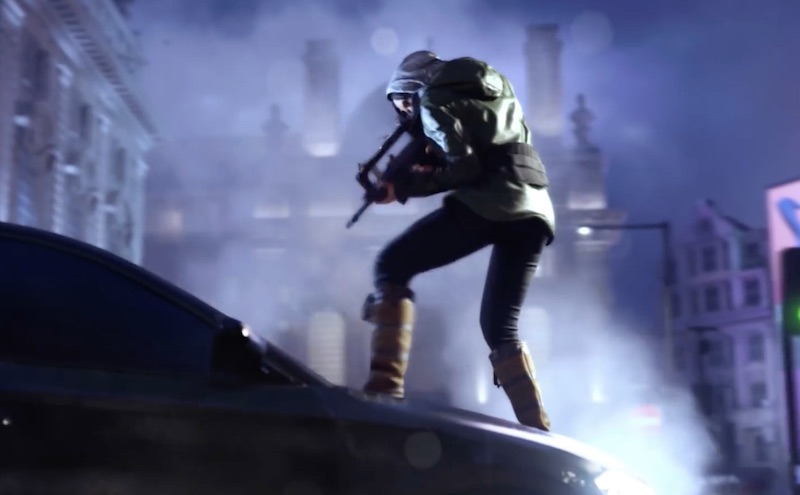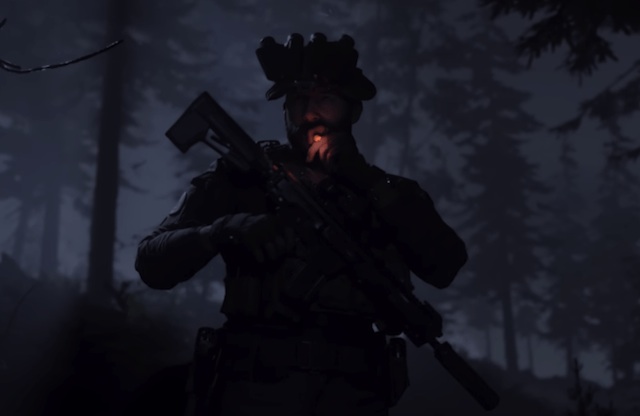Get the weekly SPARTANAT newsletter.
Your bonus: the free E-Book from SPARTANAT.
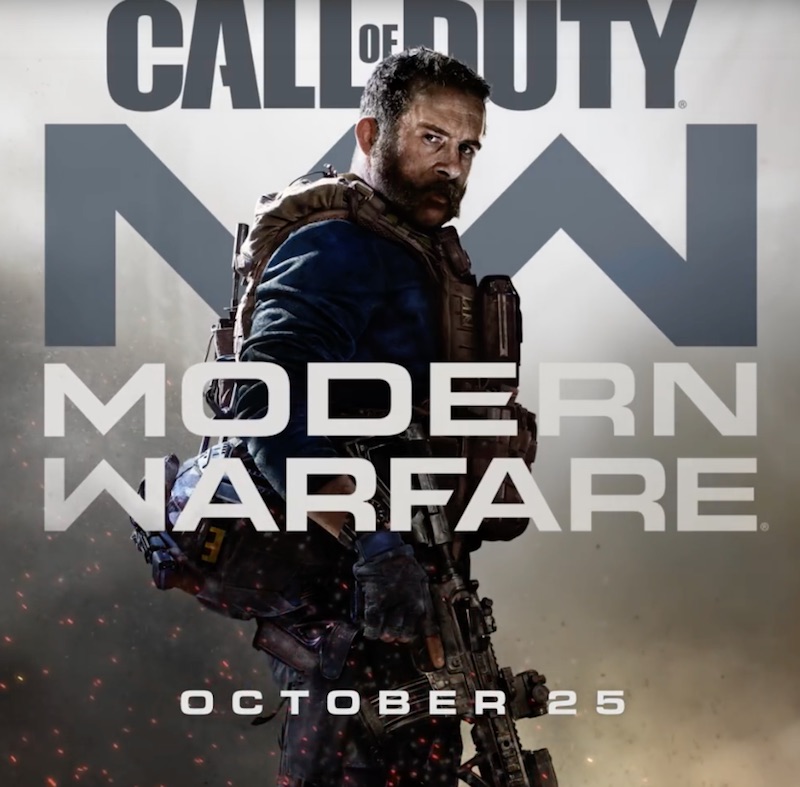
Jack Murphy is a former US Special Forces Operator. He watched the new trailer for the upcoming "Call of Duty: Modern Warfare" releasing in October 2019. Here are his thoughts:
The video game series "Call of Duty: Modern Warfare" has always depicted intentionally controversial scenes. In "Modern Warfare 2," there is a level where the protagonist acts as an undercover agent in a Russian terrorist cell that stages an attack on an airport terminal, killing hundreds of civilians. The protagonist, played by the game's player in a first-person perspective, is forced to participate in the killing. When I first played the game, I aimed my weapon at the terrorists I was undercover with and started shooting them. The game was interrupted by a forced cutscene where my character was shot by the terrorists.
This was not a game like "Deus Ex," where you find yourself in morally gray areas and have to choose from many ambiguous options. "Call of Duty" tells a story of modern warfare, suggesting that if we want to progress, we must descend to the barbaric level of our enemies to win. The game forces you to kill people; it's the only way to win.
When the trailer for the latest installment of the series "Modern Warfare" was released this week, I clicked on it and wondered if the series had evolved. Surprise, it hasn't. You can watch the trailer yourself, but from the beginning, we learn that there's a fine line between right and wrong, and that our highly stylized SOF Operators are sent into the shadows to find this line. This is an incredibly romantic view of war and of what modern anti-terror measures really are. Or as one of my Special Forces friends might describe it, "You're just looking in the mirror while jerking off."
The narrator of the game tells the player, "We get dirty and the world stays clean, that's the mission." Our heroes get their hands dirty in our name so that the free world remains free. The game's visuals show familiar scenes reminiscent of the Bin Laden raid in Pakistan and Marines attacking a city in the Middle East. Another scene seems to depict the White Helmets in Syria, while others seem to represent recent terrorist attacks in European cities. According to one article, there is even a scene in the game where operators raid a target and shoot unarmed women, allegedly because they are part of a terrorist cell. We were even told that part of the game allows you to play as an Arab soldier, so, hooray for #inclusion, I guess.
Strangely, the game romanticizes Special Operations while developing an incredibly nihilistic narrative. In "Call of Duty" games, you won't find much chauvinism or hyper-nationalism. The operators (and the players) don't fight "for God and Country." The thing is, you don't really know what you're fighting for. "Call of Duty 2" repeatedly told us that the winners write the history books, in other words, perception is reality. Infinity Ward's new continuation of the series seems to continue this trend with plot hooks and tough lines straight from the worst bro-vet memes on the internet. "You need me on that wall. Strong men stand ready to do violence on your behalf," ... something like that.
The "for something" is the hard part, because while the player in "Call of Duty" whisks over enemy terrain with Little Bird helicopters, HALO jumps, and engages in firefights with the enemy (things I did myself during my military service), one wonders why, or what is the point? When the Global War on Terror began, we fought for freedom, to prevent another attack like 9/11 and to deprive the terrorists behind it of a safe rear area from which they could operate. Seventeen years later, we're not even interested in the reasons why we're fighting in a dozen different countries.
As George Orwell wrote, "We have always been at war with Eurasia." What this has produced is a form of amoral nihilism in a certain part of our youth and even soldiers who view modern warfare today as fighting for the sake of fighting. Talk to them and they'll even explain to you that they are part of the American warrior class. Today's Spartan warriors are told that they fight because that's what fighters do.
It pains me, as a former soldier who is now a pro-military veteran, to say this. I support many of our anti-terror missions abroad, but I hope that we are actually trying to achieve something, and not just jerking off over the cool weapons and gear for war. Killing is sometimes necessary and is a socially legitimate means to protect a country and its culture, but not when we kill just for fun.
The immediate counter-argument to my opinion will be that people say, "But Jack, it's just a video game!" Yes, that's true and there's nothing wrong with playing a video game and being entertained by it. However, we must not underestimate the influence that movies and video games have on our culture. Millions of young people will play "Call of Duty." Very few will read the many available books that offer a more nuanced understanding of conflicts, whether past or present.
Sure, it's just entertainment. But Infinity Ward will never produce a game about veterans who are now landing in the country's PTSD clinics because they shot unarmed women over there. There will never be a "Call of Duty" game about Chief Eddie Gallagher and the drama he and his family went through while we stand before his court-martial, where he is accused of war crimes in Iraq. "Call of Duty" shows us alpha males with cool weapons and super gear, but it hides the actual costs of war or glorifies them as the price operators pay when they sacrifice themselves for a greater good. Everything is woven into a superficial narrative with sheep and sheepdogs.
Today, I can write all this in retrospect; I joined the Army in 2002 and left in 2010. I've been a civilian for nine years, working as a journalist covering Special Operations. I was one of the lucky ones, but now I have to wonder what goes through a youth's mind when playing a game like "Call of Duty." How much will the narrative resemble what he experiences if he were to actually be deployed in combat? Except for the nihilism, of course...
He will find plenty of that.HERE is where "Call of Duty: Modern Warfare" takes you
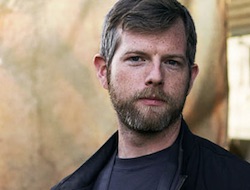 JACK MURPHY is a former U.S. Army soldier who went into the U.S. Army at 19 with the goal of becoming a Ranger. He served in the 3rd Ranger Battalion and then successfully completed the Special Forces Assessment and Selection. Murphy served in the 5th Special Forces Group. In 2010, he left the Army to study political science. Jack Murphy works as a journalist and author, serving as Managing Editor at NEWSREP.
JACK MURPHY is a former U.S. Army soldier who went into the U.S. Army at 19 with the goal of becoming a Ranger. He served in the 3rd Ranger Battalion and then successfully completed the Special Forces Assessment and Selection. Murphy served in the 5th Special Forces Group. In 2010, he left the Army to study political science. Jack Murphy works as a journalist and author, serving as Managing Editor at NEWSREP.SPARTANAT is the online magazine for Military News, Tactical Life, Gear & Reviews.
Send us your news: [email protected]
Ad
similar
Get the weekly SPARTANAT newsletter.
Your bonus: the free E-Book from SPARTANAT.


